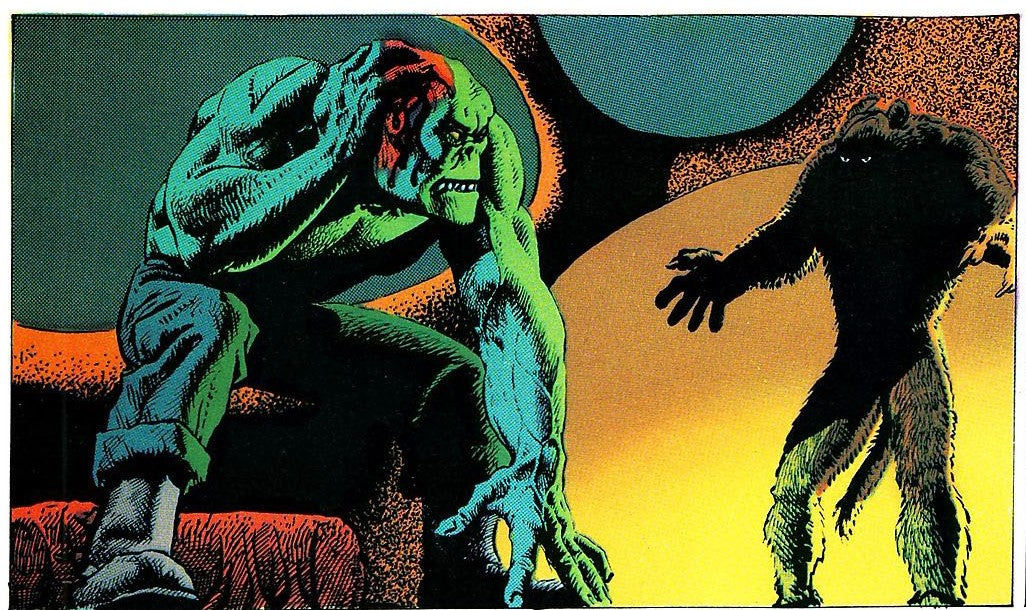Your Cart is Empty
Artists

Remembering Richard Corben
December 15, 2020 2 min read 0 Comments
On December 2, 2020, Richard Corben passed away at the age of 80, leaving a visceral legacy across comics and illustrations spanning fantasy, science fiction, and horror. My own first time witnessing (just “seeing” art feels too passive) Corben’s art was in Banner, written by Brian Azzarello for Marvel in 2001. I was taken by the sheer ferocity of Corben’s Hulk contrasted by the dread and gripping anxiety of his Bruce Banner. I didn’t have the mental vocabulary for it, but I realized later on how it deftly combined grace and grotesquery, craft and carnage.
The world of comics is full of big personalities, but Corben came across as soft spoken, modest, and fairly reserved, in contrast to the stories and characters he crafted, which were anything but. In a 1981 Heavy Metal interview, Richard Corben half-jokingly stated that all he wanted out of life was a small empire. There is a physicality to empires, and there was an undeniable physicality to Richard Corben. Flesh, gore, claw, bone, and muscle graced the pages of his extremely prolific career as an artist. Frequently using sculptures of his own making as art reference, you could feel the weight of every flex and leap and tear across his pages.
In the same interview he mentioned that he had recently turned 40 and his thoughts were turning to mortality and decline, but at the same time he was talking of making films, doing martial arts, jumping out of planes, and crafting his own world on the page. He possessed a true drive to create which can be seen as far back as the late 60s where he made his own animated short film, Neverwhere (a predecessor to his comic Den), which he did while working in industrial animation. His underground comics reached beyond Kansas City to Paris and Tokyo, attracting international attention. Even Hayao Miyazaki personally pitched an adaptation of the comic Rowlf (an earlier work which was later reprinted in Heavy Metal) which Corben declined. True, this was before Miyazaki was venerated as a god of animation the world over, and most authors would give their right arm to have Miyazaki adapt their work today, but I think if Corben was offered the opportunity again he would still turn down the offer. Throughout his work was an underlying suspicion of institutions or authority, with free will and personal authority were the only thing truly sacred to him.
Subscribe
Sign up to get the latest on sales, new releases and more …
x
